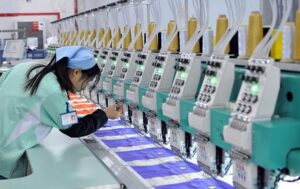Apr 19, 2021
0 Comment by ViewersApparel industries is one of the oldest industries, which fulfil one of the basic requirement of mankind. This industry is labor intensive, capital intensive, product intensive, inventory intensive and there is only one exception that is the profit margin is not intensive. Most of the developed country passed this business to the developing country or third world country and now out sources from them. Bangladesh is one those country which has already doing well in this sector and one of the best country to fulfil the world need.
So this improving scenario of this sector is impressing to all and many entrepreneur or established industrialist are investing in this sector. As a result the market is becoming more and more competitive. And in this sector “survival of the fittest” is true word. If you are not fit for the work then someone else will take the chance.
So this this has become very important to integrate the apparel industry with information technology. This is the era of information technology and it has one of the great invitation called Enterprise Resource Planning (ERP). This is a tool that ensure effective coordination between the business departments of the organization to the direct production process by providing competitive information analysis and forecast the future.
Pridesys ERP is one of the best ERP for this industry, which is developed in Bangladesh for local business trends and practice, but with the international standard.

Apparel